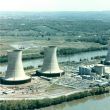Solutions must not create new problems
By Naeem Ahmad Salik, May 10, 2012
My fellow participants in this Roundtable, Sunday Jonah and Adel M. Ali, have correctly pointed out a number of weaknesses and anomalies in the global nonproliferation regime. One may disagree, however, with certain aspects of their diagnoses and remedies.
Jonah has raised the issue of nuclear security, suggesting that the threat of nuclear terrorism has grown stronger since 9/11. Threats to nuclear installations have always existed, but I believe that since 9/11 it is awareness of the threat that has increased — not the threat per se. To the contrary, I would argue that security at nuclear installations has been enhanced since 2001, and many countries have made a strong effort to augment their nuclear security by adopting a defence-in-depth approach at nuclear power plants.
The UN Security Council has taken action as well, passing Resolution 1540 in 2004. This resolution obliges member states to establish effective export controls, border controls, and legislative and enforcement mechanisms regarding not only nuclear but also chemical and biological weapons. The resolution specifically calls for strengthened measures to deny non-state actors access to nuclear materials. The International Atomic Energy Agency (IAEA), meanwhile, has carried out studies and conducted workshops in member countries regarding design basis threat — which the agency defines as "a description of the attributes and characteristics of potential insider and/or external adversaries who might attempt unauthorized removal of nuclear material or sabotage against which a physical protection system is designed and evaluated." This is an issue that had never been addressed at such a high level before, and the IAEA's actions will, at future nuclear reactors, translate into enhanced capacity to withstand attacks similar to those carried out on 9/11 — attacks of a sort that were never considered when reactor domes were designed and constructed in the past.
Jonah has suggested that the agency's jurisdiction be expanded so that it can carry out inspections to evaluate security arrangements in signatories to the Nuclear Non-Proliferation Treaty (NPT). Such an expansion would be difficult to arrange — and would require a substantial increase in the agency's budget and the size of its technical workforce. Experience shows that it is never easy to persuade nations to make higher financial contributions to international organizations.
In any case, the IAEA already finds it difficult to cope with its existing responsibilities to implement safeguards, especially since the introduction of the Additional Protocol to the NPT Safeguards Agreement. Given all this, one must recognize that the nonproliferation regime is not a panacea for all problems, nor should the agency's role be expanded to the point that it cannot meet its obligations (or, alternately, until the agency becomes a sort of supranational government).
Ali, on the other hand, argues that Israel should join the NPT as a non-nuclear weapon state or that a nuclear-weapon-free zone should be established in the Middle East. While it is understandable that many in the Arab world would like for Israel to give up its presumed nuclear arsenal, proposals to achieve this usually advocate, problematically, that India and Pakistan also join the NPT as non-nuclear weapon states. Such proposals overlook the fact that while Israel would be offered something in return for disarming — recognition of its right to exist, security assurances — no such quid pro quo is in the offing where India and Pakistan are concerned.
Indeed, US President Barack Obama has promised to facilitate India's entry into the global export control regimes — especially the Nuclear Suppliers Group, which already in 2008 granted India a waiver allowing it to participate in nuclear trade despite its status as a nuclear weapon state outside the NPT regime. Now a number of countries, taking their cue from the United States, are rushing in to sell nuclear materials and equipment to India, even at the cost of violating their obligations with regard to the nuclear-weapon-free zones to which they are signatories. A case in point is Australia; many argue that its decision to sell uranium to India contravenes its obligations under the Treaty of Raratonga. This environment of exceptionalism, in which commercial interests trump nonproliferation ideals, neither encourages treaty outliers to join the regime nor promotes the regime's equitable implementation.
Topics: Nuclear Energy, Nuclear Weapons
Share: [addthis tool="addthis_inline_share_toolbox"]














